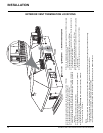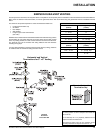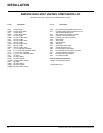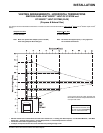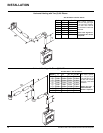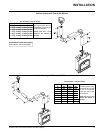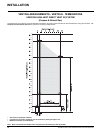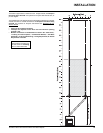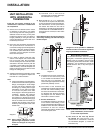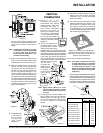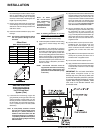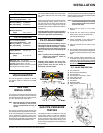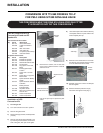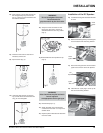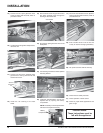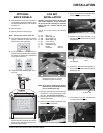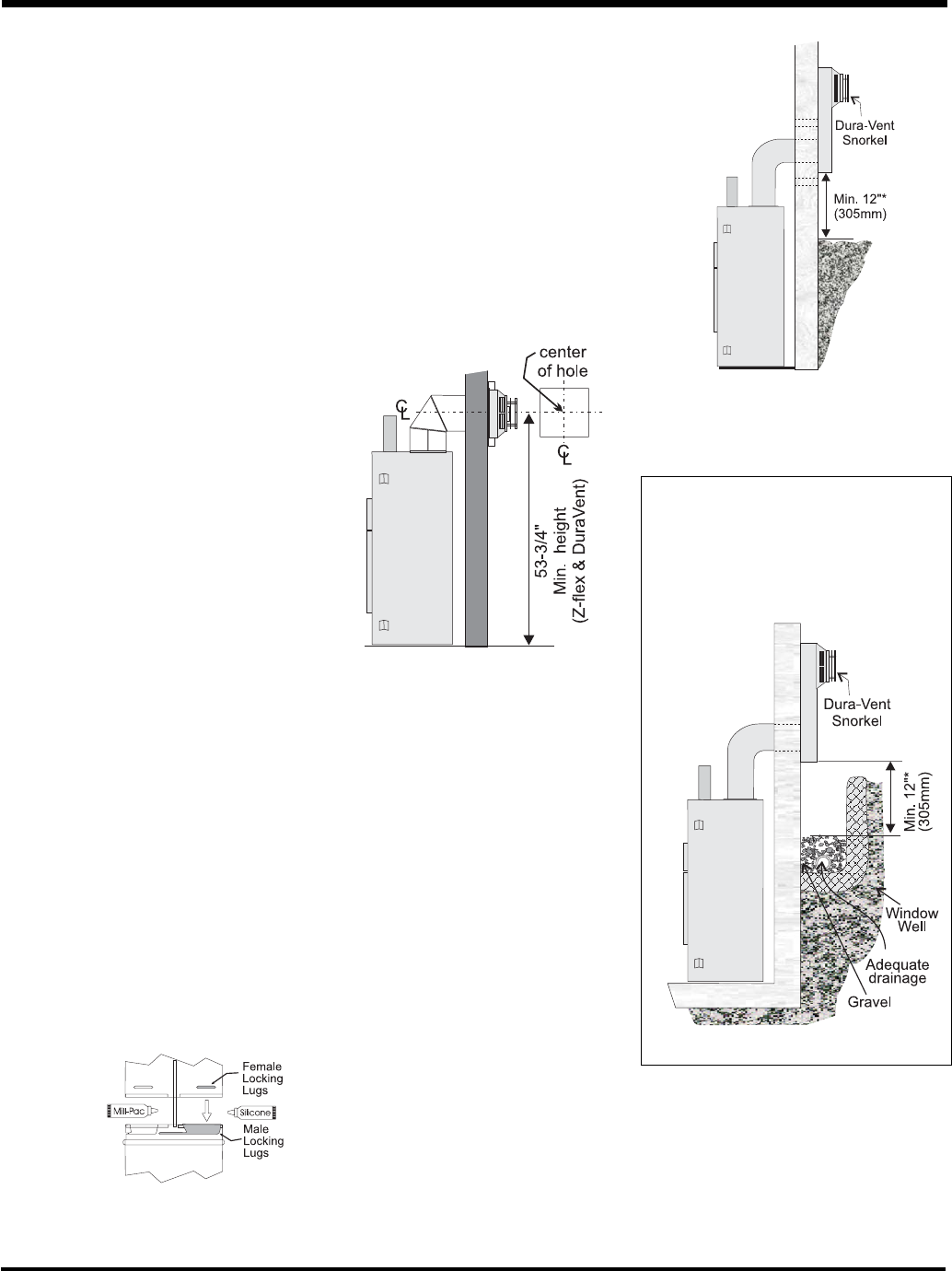
Excalibur
®
P95-3 Zero Clearance Direct Vent Gas Fireplace
20
INSTALLATION
Diagram 4
NOTE: For Snorkel terminations in ABOVE
grade installations, follow national
or local code requirements.
Below Grade Installation
If the Snorkel Termination must be installed
below grade, i.e. basement application, proper
drainage must be provided to prevent water
from entering the Snorkel Termination. Refer
to Diagram 4. Do not attempt to enclose the
Snorkel within the wall, or any other type of
enclosure.
*Diagam 3 & 4: As specifi ed in CGA B149
Installation Code. Local codes or regulations
may require different clearances.
UNIT INSTALLATION
WITH HORIZONTAL
TERMINATION
Install the vent system according to the
manufacturer's instructions included with
the components.
1) Set the unit in its desired location. Check
to determine if wall studs or roof rafters
are in the way when the venting system is
attached. If this is the case, you may want
to adjust the location of the unit. Rough in
the gas preferably on the right side of the
unit and the electrical (junction block is on
the left side) on the left.
2) Direct Vent pipe and fi ttings are designed
with special twist-lock connections to
connect the venting system to the appliance
fl ue outlet. A twist-lock appliance adaptor
is an available option that must be used in
conjunction with the Simpson Dura-Vent
Direct Vent GS system.
3) Put a bead of silicone inside the outer
section of the adapter and a bead of Mill
Pac on the inner collar. Slip the adapter
over the existing inner and outer fl ue collar
and fasten to the outer collar only with the
3 supplied screws (drilling pilot holes will
make this easier). Level the fi replace and
fasten it to the framing using nails or screws
through the nailing strips.
4) Assemble the desired combination of pipe
and elbows to the appliance adaptor and
twist-lock for a solid connection.
Note:
a) Twist-lock procedure: Four indentations,
located on the female ends of pipes and
fi ttings, are designed to slide straight
onto the male ends of adjacent pipes
and fi ttings, by orienting the four pipe
indentations so they match and slide
in to the four entry slots on the male
ends, Diagram 1. Push the pipe sections
completely together, then twist-lock
one section clockwise approximately
one-quarter turn, until the two sections
are fully locked. The female locking lugs
will not be visible from the outside, on
the Black Pipe or fi ttings. They may be
located by examining the inside of the
female ends.
Diagram 1
b) Horizontal runs of vent must be
supported every three feet. Wall straps
are available for this purpose.
5) Mark the wall for a 11" x 11" square hole.
The center of the square hole should line
up with the centerline of the horizontal pipe.
Cut and frame the 10 inch square hole in
the exterior wall where the vent will be
terminated. If the wall being penetrated is
constructed of non-combustible material, i.e.
masonry block or concrete, a 8" dia. hole is
acceptable.
Diagram 2
Note:
a) The horizontal run of vent must be level,
or have a 1/4 inch rise for every 1 foot
of run towards the termination. Never
allow the vent to run downward. This
could cause high temperatures and may
present the possibility of a fi re.
b) The location of the horizontal vent
termination on an exterior wall must meet
all local and national building codes,
and must not be blocked or obstructed.
For External Vent Terminal Locations,
see diagram from the "Exterion Vent
Termination Locations" section.
c) Snorkel Terminations:
For installations requiring a vertical rise
on the exterior of the building, 14-inch
and 36-inch tall Snorkel Terminations are
available. Follow the same installation
procedures as used for standard
Horizontal Termination. NEVER install
the snorkel upside down.
Diagram 3
Note: Apply sealant "Mill-Pac" to inner
pipe and high temperature silicone
sealant to outer pipe on every twist-
lock joint.
Note: With Dura-Vent, the minimum height is
achieved by installing a 90
o
elbow directly to
the fl ue adaptor.
6) The arrow on the vent cap should
be pointing up. Insure that the 1-1/2"
clearances to combustible materials
are maintained (Diagram 4). Install the
termination cap.



